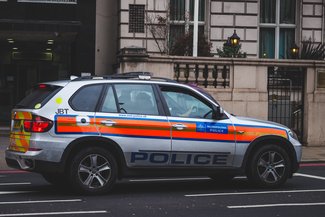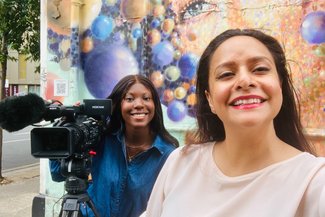We have taken the weekend to reflect on and process the horrifying BBC Panorama documentary that was aired last week, captured by an undercover journalist in the Metropolitan Police’s Charing Cross custody suite. We are appalled – but unfortunately, not surprised – at the flagrant racist, misogynistic, ableist, and islamophobic attitudes demonstrated by serving police officers, as well as the apparent delight in employing use of force against members of the public. Most concerning was the sexually aggressive attitude displayed by officers towards a vulnerable woman in police custody.
Several years on from the Casey Review and the London Race Action Plan, and despite promises to change, the Metropolitan Police has once again displayed that the violence, racism and sexism embedded in their force is down to more than a few ‘bad apples’, but a systemic problem that reaches into the cultural heart of the institution.
We hear time and again from our member organisations that the women they support, particularly racially minoritised women and survivors of domestic abuse, not only do not trust the police, but are fearful of the police. This grim display only confirms their fears. Women and girls are being let down by the very systems and services that are supposed to support them in their greatest time of need.
We also know that the rise of the far-right is a genuine fear for our members and the people that they work with, and hearing serving officers express violently racist sentiments simply revalidates Louise Casey’s original finding that the Metropolitan Police is institutionally racist.
This is not the time for another review, another action plan, or another inquiry. The Metropolitan Police’s current efforts to root out racism and misogyny clearly are not working. In line with our Call to Action for our Young Women’s Justice Project - that was developed through consultation with young women with lived experience, the services supporting them and other expert practitioners - a radical re-approach to building trust and confidence must be taken:
- All Police and Crime Commissioners should appoint girls and young women with lived experience as Young Women Advisors in the development and delivery of their Police and Crime plans, including making plans for the commissioning of relevant local services. These young women should also be involved in scrutiny mechanisms to establish progress of delivery.
- Every UK police force must be compelled to use reporting mechanisms when communicating progress made against their VAWG Action Plans, with publicly available regular reports demonstrating progress against promised outcomes, showing how they are improving responses to criminalised girls and young women with multiple unmet needs.
- Police and Crime Plans must consistently centre women and girls and racially minoritised people, with explicit steps as to how they will protect and serve these groups.
- Police and Crime Plans must allocate resource to specialist services led by and for Black, Asian and minoritised groups and young women with lived experience, in order to develop and deliver standards, training and guidance for professionals. This training will address the ways in which young women’s age, gender, ethnicity, race, faith, and community and cultural backgrounds intersect to inform their experiences of disadvantage and contact with the criminal justice system, and guide the way that professionals interact with them.
We are committed to working with police forces to improve their responses to young women and girls, but there needs to be a sustained, genuine effort to change culture and practice from their side too, with immediate effect.
To our members who support young women and girls who experience the sharpest end of marginalisation, and who stand up to racism, misogyny and islamophobia every day in the most difficult and triggering conditions, we stand in solidarity with you.




